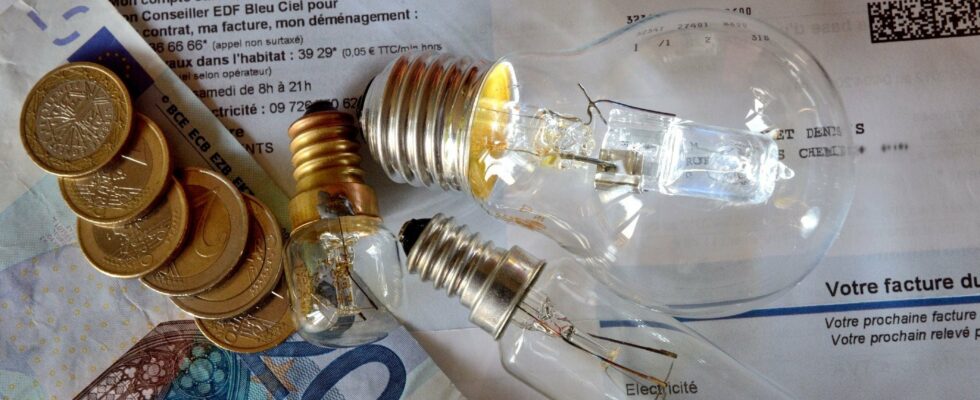In an electoral campaign, it is often important to speak first. It is therefore no coincidence that the Minister of the Economy Bruno le Maire promised – only two days after the announcement of the dissolution of the National Assembly – a reduction of 10 to 15% in the electricity bill to from February 2025. The objective is twofold: to take the National Rally by surprise, which has made purchasing power and the energy bill its hobby horse, and not to let it settle for too long in people’s minds. announcement by the Energy Regulatory Commission (CRE) of an increase of almost 12% in gas prices in July.
From the campaign for the European elections, to the one for the legislative elections which is currently taking place, one fact is clear: the war of political promises on energy prices is in full swing. “We see that the energy issue is over-represented compared to the other issues in the campaign, unfortunately there is often a lack of understanding of the subject by political leaders,” notes Nicolas Leclerc, co-founder of the energy and decarbonization consultancy Omnegy. Bringing together the notions of purchasing power, sovereignty and even ecological transition choices, the energy bill is an almost perfect field. “There is a way to make a strike“, notes Julien Tedde, general manager of Opéra Énergie, energy broker for businesses.
Costly measures for the taxpayer
For the moment, a good part of the proposals are based on blocking prices, on the New Popular Front side, or a reduction in taxes, on the National Rally side. However, by counting on a reduction in the electricity bill, the parties can currently offer themselves an easy victory. The government understands this well: “When it promises a 15% drop in the price of electricity next winter, it is only anticipating a dynamic already observed on the wholesale markets,” notes Nicolas Leclerc. Logic: EDF’s regulated tariff, in application since February 1, 2024, is calculated in particular by taking into account the price of electricity during the previous two years. However, in 2022 and 2023, two years of energy crisis, the price of electrons was extremely high. With the recovery in nuclear production, wholesale prices have fallen in 2024 and the cost of electricity will therefore automatically fall next winter. “We are already seeing price offers which are around 20% lower than last year, so we cannot put this reduction to the credit of a majority,” underlines the specialist. Behind the reduction announced by Bruno Le Maire would even hide a slight increase in taxation, which should allow the government to gradually exit the very costly tariff shield put in place during the winters of 2022 and 2023.
This market trend also gives wings to the National Rally. Invited to debate on the BFM set, Jean-Philippe Tanguy, responsible for the economy and energy within the party, began to promise a reduction in the electricity bill of “at least 40% ” in the event of victory in the legislative elections. Jordan Bardella, whose program was detailed this June 18 in Le Parisien, is more moderate. He mentions a 30% discount on invoices. For this, the president of the National Rally intends to apply a reduction in VAT from 20% to 5.5% on all energy products, including electricity. A measure costed by the RN at 12 billion euros, but at 17 billion by the Ministry of the Economy. On the other side of the political spectrum, the price blocking strategy carried out by the NFP leaves experts doubtful. “This is what was done in part by the government with the tariff shield, but ultimately this has an impact on the taxpayer,” notes Julien Tedde.
On the side of the presidential majority, we have done the calculation: according to the Ensemble pour la République coalition, the cumulative cost of removing the 10% tax on energy bills and canceling the 12% increase in gas price on July 1 would amount to 13 billion euros.
Forgotten climate goals
The economic cost of a price freeze is not the only concern. Applied to gas, it could have an effect on the quality of service. The increase expected in July is linked to an adjustment in network maintenance costs, even though consumption has fallen in France. This share, which represents a little less than a third of the bill, “increases a little since we are spreading increasing costs over decreasing consumption”, underlined Emmanuelle Wargon, president of the CRE. “The RN says that it wants to reverse this increase in the price of gas, but if the price falls it will represent less money to maintain the networks,” adds Nicolas Leclerc, from Omnegy.
The proposals for price freezes, or reductions in taxation, which are particularly difficult to finance, also forget that a reduction in prices would represent an obstacle to the sobriety efforts currently required to maintain the balance of the electricity network in the future, and our climate goals. “We should talk about the energy renovation of buildings, the reduction of consumption, because we will not be able to complete the equation only with nuclear power and renewable energies,” underlines Camille Defard, head of the energy center at the Jacques Institute. Delors. But the expert recognizes it: a few days before the election, the subject is not very promising.
.
